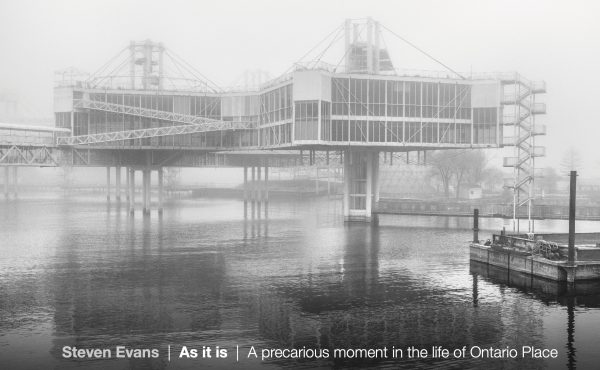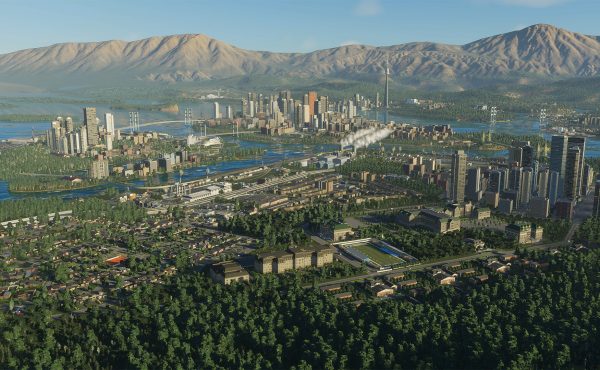
In May of 2007, the search-engine behemoth Google launched a new Google Maps service called Street View. As the name suggests, Street View offers users the option of looking at photographs of streetscapes taken at ground level when searching for directions on Google Maps. Although still in its initial stages, Street View has already accumulated images from 27 cities across the USA, and is slated to debut images from Canadian cities some time this year.
Needless to say, Street View has caused some concerns over privacy. Images of people caught in less-than-honourable activities (such as a break-in, an arrest, speeding cars, exiting an adult book store and a strip club, etc.) have been showcased throughout the internet, sparking discussion about the right to privacy in public spaces.
The most recent case involves a Pittsburgh couple whose house was photographed and added to the myriad images that make up the Pittsburgh area Street View. Aaron and Christine Boring are now suing Google for “invasion of privacy,†claiming that the company used a clearly marked private road to drive up to their home and take photographs of their property. The Borings also claim that they have endured “mental suffering†and that the value of their property has suffered since their home was featured on Google Maps.
As Toronto patiently waits for our own version of Street View, it is worth noting that Canada, like many European cities and unlike the USA, has strict laws concerning an individual’s right to privacy. Although pictures are not the focus of the Personal Information Protection and Electronic Document Act, these rules stipulate that consent is required before a private company can distribute personal information. In response to a letter from the Privacy Commissioner Jennifer Stoddart and growing public apprehension about the service, Google announced in September 2007 that identifiable faces and licence plates appearing in any Street View of a Canadian city will be blurred.
These cases raise compelling questions about our right to privacy in public spaces. Do you believe that Street View compromises people’s privacy? Or do the benefits of the service outweigh the possible costs?
Photo by Josh Bancroft.





23 comments
Insofar as photographs of people in public spaces is concerned, Canada, with the exception of Quebec, has the same laws as America, the UK, and Europe, with the exception of France.
If you’re in a public space, you’re fair game for anyone with a camera. The photographer cannot, however, use your likeness to advertise a product, libel, or humiliate you. If you’re naked and hanging out your window, I can take a photo of you and publish it, provided I’m standing on the sidewalk. But if I climb up the side of your building and hang through your window to take a photo of you engaging in amorous acts with the UPS guy, then I’m a bit of trouble.
So, if you walk out of a strip club or a porn store, or you’re selling dope or guns on the street, and I take your photo, I can publish it in an editorial setting. You give up your rights to privacy when you leave your home. If you do not want anyone to look at you or take your photo, then stay at home or wear a burqa.
I take and post photos of strangers frequently. What I’m doing is not illegal. Google’s street scenes, to me, are the same thing. They’re using photos in an editorial setting.
There is no right to privacy in a public place period. I like it that way. That does not mean that citizens or their property don’t have rights but those rights are not privacy rights.
The only thing that has changed is that there are now so many ways to take images and distribute them. Mistakes such as the Pittsburgh case are in fact very few compared to the massive amount of ground covered and while I agree with the couple I find their “mental suffering” in the land of the litigious to be a wee bit suspect. Google can easily remedy the problem and if they wish the couple can still pursue monetary damages. As it should be. It should be remembered that the real issue is that Goggle physically was on their property because their house is already on Google Earth.
I think the Goggle street view is a great innovation and less of an invasion of privacy than data mining, cell phones, web cookies an on and on.
I agree Scott…This is a great use of technology…And with every great use of technology, there will be riff raff:
http://streetviewgallery.corank.com
Out of curiosity, what city is pictured above? Portland? Looks nice.
Is this any different then taking a picture of Nathan Phillips Square and then posting it on flickr?
I don’t think the ends really justify the means. Even if people are in public spaces, my sense is that the proliferation of Google’s image-based searches are fueled largely by voyeurism. I really don’t think having pictures of houses across Toronto or Portland or anywhere serve a great public need. It’s more of a fetish for people. It’s “cool” and fun and whatever, and because has the technical ability to do it then they want to do it and those of us who like explore places from our desks get pleasure from it. I’m not saying Google should cease to create products like this, but they have to do so with caution, and we should accept and use these products with caution as well. If this was filling a great social void perhaps I would feel differently, but I really think this is predominantly a web-toy for virtual flaneurs.
Yeah, ’tis Portland, OR.
Oops. I just re-read my post and realised I missed a few words in the midst of my sentences. I hope it all made sense! Mea culpa.
I’d rather have an open, public system that anyone can access taking pictures across the city, as Google does, than a multitude of closed and private CCTV cameras, like the Toronto police’s, that no one can check to see that they’re doing things they shouldn’t.
This might help put some of it in context. The Smoking Gun found some images that raise some interesting privacy issues. One of the Google Street View vehicles moved up what appears to be a private driveway. It’s worth checking out: http://www.thesmokinggun.com/archive/years/2008/0407081google1.html
There was a larger discussion here (http://yro.slashdot.org/yro/08/04/06/1212248.shtml?tid=217) and here (http://yro.slashdot.org/yro/08/04/08/1614206.shtml)
It sounds like most of the specific issues are some American state laws and going down private roads in rural areas.
Matt C#2> I don’t think Google and others would spend the time and money if this was driven by a fetish.
This software, like Virtual City, has many many uses such as in real estate or in location scouting for film, or urban research. The ability to see a place that you cannot get to physically, and really it about seeing a place not people, is a very powerful resource. And it will one day have historical significance as well.
I even see some of the Spacers using this to help illustrate points of interest in other cities.
I think the privacy concerns here are mild, but I don’t see why Google shouldn’t be asked to take them into account. Scrubbing out faces and license plates just requires them to spend a bit more money. I’m sure they can find a way to do it cheaply, and keep the whole thing profitable. Blurred faces won’t harm the legitimate uses Scott lists.
“It’s a cool new technology” shouldn’t trigger a blanket exception from privacy laws. And it seems clear the privacy commissioner is interested in large-scale image collection by private companies; I don’t think individual photographers need to worry this will end up restricting them.
If they ignored the photos, they would have been ignored. However, now that they told everyone about their lawsuit, everyone wants a look.
It’s like the person who talks too loud, or kids yelling, it draws more attention.
You want to be ignored, don’t say anything. If you had a stain on your pants, it would be ignored, but if you said something about the stain, people would start to notice.
WK Lis> You are right, their house was on the US national TV news shows tonight.
The only reason I know where Barbra Streisand lives and what her backyard looks like is because she sued:
http://www.californiacoastline.org/streisand/lawsuit.html
Boring vs. Google? That’s too funny!
Toronto already has a non-Google version of streetview. See VirtualCity.ca http://www.virtualcity.ca/ Not as extensive as StreetView, but same concept.
Of related interest is the problem of authorities claiming rights they do not have in terms of taking photos in public places.
http://www.pressgazette.co.uk/story.asp?sectioncode=1&storycode=40875&c=1
I agree: if it’s in public space, it’s ok to capture photographically.
On a related note, see the March 22/08 article in TimesOnline, “Street photographers fear for their art amid climate of suspicion; With public concern rising over paedophilia and terrorism, street photographers face new difficulties,” which illustrates how “homeland security” type paranoia is making life hell for street photographers.
See: http://tinyurl.com/3ygwgb
Sure, you’re free game when out in public, but once someone involved starts making money on the photographs, then that becomes a different story.
Ryan> Why?
(no flame, wondering the reasons why — i think i know why — but want to hear others)
If I were to take a photo in a mall or public square, which is owned by a private company, I can’t legally make a profit on that photo unless that company says I can. And it’s quite surprising how many public places are actually private property.
In google’s case, they are sticking to roads when taking the photos, so they are going to be safe most of the time. However, in the example above, they brought their van onto the person’s private laneway.
If the homeowners’ lawyer was smart, they would have sued for a portion of ad profits instead of for emotional distress. Trying to figure that number out would be the tough part though.
Get used to it folks. If you want to keep your privacy, take proper precautions. If Google can accomplish satellite and street views of almost anywhere, imagine what the intelligence community can see and hear!